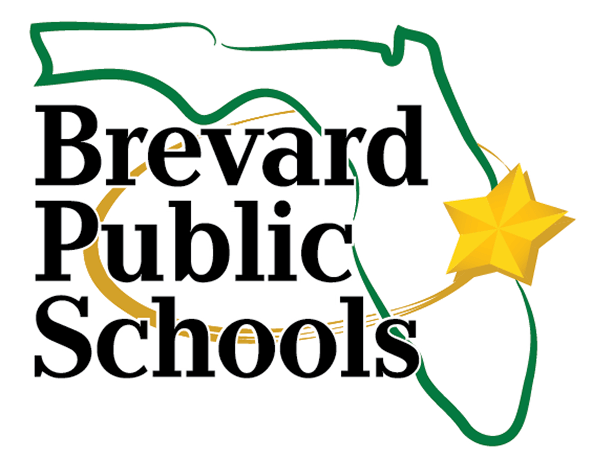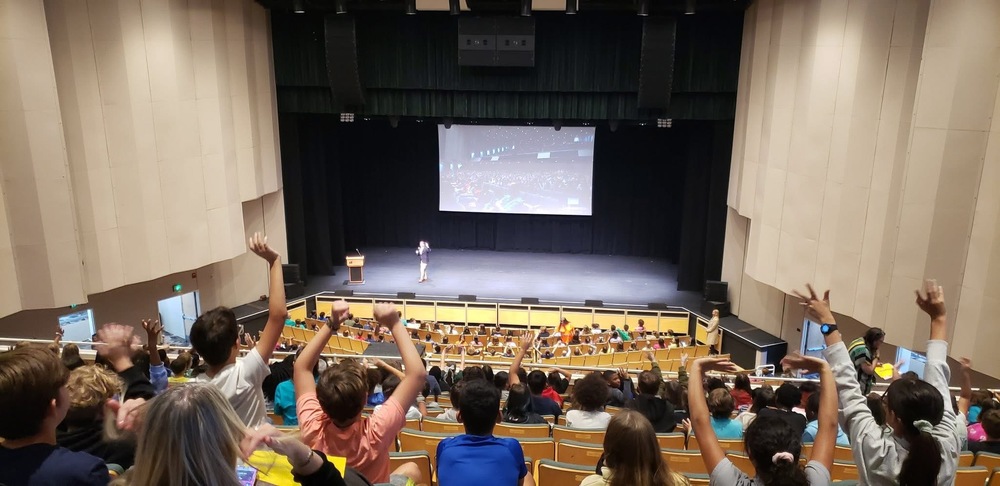We Want to Beat the Crisis’: Student Resilience Gets a Boost in Brevard
A coffee bean might seem like an unlikely symbol of strength, but for sixth-grade students across Brevard County, it’s become a powerful metaphor for resilience.
Through Brevard Public Schools’ (BPS) “Resiliency Reads” initiative, students are reading The Coffee Bean by Jon Gordon and Damon West—a story that teaches how individuals can transform their environment rather than be changed by it. The book follows a teenager who learns that, like a coffee bean in hot water, he can rise above adversity and positively influence the world around him.
“It taught me to be a positive person,” said Marilyn Smith, a sixth-grader at Mims Elementary. “Always show kindness to others. Don’t let your environment impact you.”
Marilyn explained how the carrot and the egg become soft or hard when placed in hot water, but the coffee bean changes the water itself. “It will change its environment to be a better place,” she added.
That’s the heart of Resiliency Reads—empowering students to face life’s challenges with confidence and compassion.
On October 20, author Jon Gordon will speak at the King Center in Melbourne, where students will hear his message live, while others across the district tune in remotely. The event is part of a broader effort to promote mental wellness, positive school culture, and student empowerment.
The initiative is supported by the Brevard Schools Foundation and Health First, which recently contributed a $104,000 Wellness Grant to expand the program. Last year, Health First donated $50,000, and this year’s increased support reflects the growing need for mental health education in schools.
“Supporting Resiliency Reads is one way we can extend our mission — to improve the health and wellness of the communities we serve — beyond our hospitals and into classrooms,” said Chris Kern, System Vice President of Philanthropy at Health First. “We’re giving students the mindset and confidence to face challenges and build healthier futures.”
The program is built around grade-specific books and includes classroom discussions, journaling, and interactive activities. Students learn how to:
Build resilience when faced with challenges
Lead with kindness and empathy
Take ownership of their actions and mindset
Dr. Mark Rendell, Superintendent of Brevard Public Schools, emphasized the importance of the initiative: “The Coffee Bean initiative empowers our students to turn obstacles into opportunities and shape their own success—even in difficult situations. We are proud to partner with Health First to bring this life-changing program to our classrooms and give every child the tools to thrive.”
Charissa Reynolds, Behavioral Care Manager with Health First, noted the urgency of addressing students’ mental health. “They’re having a lack of coping skills,” she said. “It’s so productive because it allows students to not only build resilience but gain these overall coping skills. Because we don’t want to just wait until a student has a crisis. We want to beat the crisis.”
The program also aligns with findings from the Community Health Needs Assessment (CHNA), which identifies key challenges facing Brevard residents. For example:
29% of adults report high scores on Adverse Childhood Experiences (ACEs), including household substance abuse and parental separation.
34.4% of residents face food insecurity, which can affect emotional development and academic performance.
29.6% of residents report being unable to cover a $400 emergency expense.
Resiliency Reads helps address these issues by teaching emotional regulation, coping strategies, and resilience—skills that benefit students both in and out of the classroom.
“When we invest in the resilience of our students, we’re investing in the strength of our entire community,” Kern said. “Health First is proud to partner with Brevard Public Schools to help ensure every child has the tools they need to grow, thrive, and succeed, right here at home.”
Reynolds echoed that sentiment: “It allows them to be better parents or better community leaders. It allows them to be better friends, better coworkers overall. I think that by investing in our kids now and investing in our students into building this resiliency, it's going to help our community in the long run.”
For more information on Wellness Grants and other ways Health First gives back to the community, visit hf.org/giving-back.

